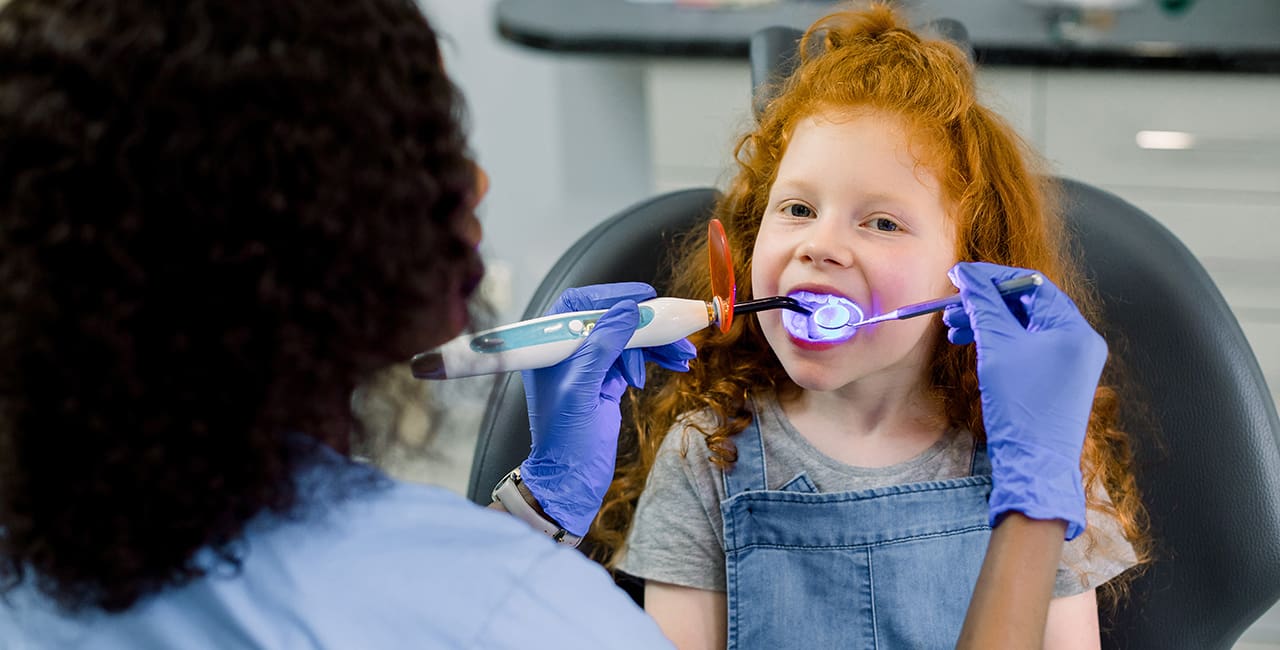According to the CDC, when dental sealants are applied between the ages of 6 to 12 years of age, they can prevent up to 80% of cavities for 2 years and continue to protect against 50% of cavities for up to 4 years.
This means that children without sealants are almost three times more likely to develop cavities than children with sealants 🤯.
Why Are Dental Sealants Necessary?
Pit-and-fissure sealants help to prevent cavities, particularly in children. The chewing surfaces of molar teeth have deep fissures that can trap food particles and are difficult to clean, even with thorough brushing.
The sealant forms a barrier that protects these vulnerable areas from decay, significantly reducing the risk of cavities.
They are safe and widely recommended by dentists. The materials used in dental sealants have been approved by the American Dental Association (ADA) for use in children.
Who Can Benefit from Dental Sealants?
Dental sealants are most beneficial for:
- Children with molar teeth or premolar permanent teeth: Newly erupted permanent molars are especially susceptible to decay.
- Kids with special needs: Children with special needs may have difficulty brushing their teeth thoroughly, making them more prone to dental decay.
- Individuals at higher risk of tooth decay: Those with a history of cavities or poor oral hygiene practices.
How Long Do Dental Sealants Last?
Dental sealants can last several years with proper care. While the longevity of the sealants varies based on factors such as oral hygiene and eating habits, they generally last for up to 10 years.
Whenever you come in for a dental check, we will check your child’s sealants and, if necessary, repair or replace them.
Benefits of Dental Sealants
- Prevents tooth decay: Acts as a barrier against plaque and bacteria.
- Cost-effective: Reduces the need for more expensive dental treatments in the future.
- Non-invasive: The entire process is painless and doesn’t take long to perform.
- Maintains oral health: Helps keep teeth healthy, especially in kids who may struggle with proper brushing techniques.
The Process of Applying Dental Sealants
Applying dental sealants is a quick, painless process that requires only a few steps:
- Clean the teeth: The dentist will start by cleaning the tooth surface to remove any plaque or food particles.
- Prepare the teeth: The tooth is then dried, and an acidic gel is applied to roughen the tooth enamel, which helps the sealant bond better.
- Apply the sealant: After washing off the gel and drying the tooth again, the sealant material is applied to the occlusal surface (chewing surface) of the tooth.
- Harden the sealant: A special blue light is used to harden the sealant, securely bonding it to the tooth’s surface.
Maintaining Sealants
Sealants are pretty low maintenance, but to ensure the effectiveness of dental sealants, your child should:
- Use hydroxyapatite or fluoride toothpaste and brush teeth twice daily.
- Have regular dental checkups and cleanings.
- Avoid chewing hard foods that could damage the sealants.
🔑Key Takeaway
Dental sealants are a safe and effective way to prevent tooth decay, particularly in children. They act as a barrier against plaque and bacteria, reducing the risk of cavities. With proper care, sealants can last for several years.
FAQS About Dental Sealants
Are dental sealants applied to baby teeth?
While dental sealants are most commonly used on permanent molars and premolars, they can also be applied to baby teeth in some cases. This may be recommended for children who have a high risk of tooth decay or have deep grooves and fissures on their baby teeth.
Are dental sealants more effective than fluoride at preventing cavities?
Dental sealants and fluoride both play important roles in preventing tooth decay. While fluoride helps to strengthen the enamel of teeth, dental sealants act as a barrier against plaque and bacteria. When used together, they can provide greater protection against cavities. So, it is recommended to use both for optimal oral health.

